- Home
- Jeremy Robinson
Insomnia and Seven More Short Stories Page 3
Insomnia and Seven More Short Stories Read online
Page 3
When it was over, he turned to Matthew, who had just recovered his glasses from the stream bed. “Thanks.”
“Are you okay?”
Jerry nodded. “They were leeches, I think.”
“Leeches?”
Jerry nodded again. “We better get out of the water.”
The pair scrambled up the embankment and managed to hobble out to one of the only paved roads for miles. They began to hike back toward the cabin their family stayed in every summer when a loud horn made them jump.
A green station wagon screeched to a stop next to them. Matthew and Jerry sighed with relief. Their father climbed out of the driver’s-side door and headed toward them. Joshua poked his head out of the backseat window. “I got Mom and Dad!”
“At least you’re good for something,” Matthew said.
Jerry passed out and collapsed into his father’s arms, exhausted from the ordeal. “What happened?” their father demanded.
“He’s okay,” Matthew said.
The father grimaced. “Get in the car.”
Matthew got in the backseat with Joshua, knowing that they would all be in trouble for this later on. “Where are we going?” he asked as their father placed Jerry next to their mother on the front seat. “The hospital,” their mother said.
The doors closed and the car zoomed through the woods, arriving at the nearest hospital twenty minutes later. Jerry remained unconscious when the doctors began testing him; they closed the doors to the examination room and asked the family to wait outside as they preformed more tests.
For three hours, their parents, Matthew and Joshua lingered in the waiting room, pacing, chewing their lips and wringing their hands together, but no one spoke. The door to the room opened and a doctor approached. Matthew noticed the odd expression on the doctor’s face. Something was wrong.
“I’m afraid I don’t quite understand what happened here today,” the doctor said.
All eyes remained glued to the doctor’s. He continued, “Your son, Jerry...We got his medical history from the Children’s Hospital in Boston.”
The mother nodded. “That’s where he’s being treated.”
“Then the charts are correct? Jerry had leukemia?”
The father nodded. “Jerry has leukemia.”
The doctor flashed a toothy grin. “Had leukemia. Whatever happened to him out there today…his blood is clean…the cancer is gone.”
Matthew’s jaw dropped open and he bolted for Jerry’s room. The parents careened after him. Joshua stood alone in the hallway with the doctor. He looked up at the doctor and removed an object from his pocket. He held it up for the doctor to see. “Want to see my pine cone? It’s huge!”
AFTERWORD
Rereading this story after so long brought a smile to my face. Everything in it, except for the leukemia and leeches is a part of me. Matthew is my older brother. Joshua is my younger brother. And Jerry is me. The dynamic between the three brothers and the way they speak to each other is all very accurate. Even the green station wagon is an icon of my youth.
We spent all of our childhood summers at a campground in New Hampshire (which I also featured prominently in my novel PULSE). The stream is there, and Matthew really did fall into it one summer. He was trapped and I had to run back to the cabin for help. Ironically, the person who came to our aid was...Aunt Jerry. No joke. The flooded sandpit is real and begins most summers full of water. By midsummer it is reduced to a large puddle that absolutely swarms with writhing tadpoles. That puddle was the inspiration for this story.
I wrote this story after moving back to New Hampshire from Los Angles. Wanting to reconnect with nature after having lived in the city for three years, my wife and I spent the summer at the cabin. I was surrounded by the sights, sounds and smells of my childhood and turned them into this story. Reading it brings back a lot of good memories of places and experiences that still inspire my writing today.
HARDEN’S TREE
“He was pure evil,” Jamie said, as she stared up at the leafless maple.
Standing beside her, I noticed how the roots cling to the ground on top of the grassy hill, like a massive hand squeezing the guts out of the Earth. “I don’t believe a word of it,” I said. “And I’m not getting any closer.”
Jamie was eighteen; two years older than me and a dream come true. When she asked me to go for a walk tonight, I nearly passed out. Then I found out Chaz was coming—her boyfriend, who stood waiting at the top of the one hundred foot-tall hill. Damn.
Jamie smiled at me, “C’mon, Ben. You’re not afraid of an old tree, are you?”
“No,” I said. That was the first lie I ever told her.
Jamie shook her head and joined Chaz at the base of the tree, next to the bronze plaque. I’d never read it personally, but I knew what it said. “Here lie the ashes of Harden Holt – Who in the year of our Lord, 1897, did murder twenty-six Christians with a sharpened stick.”
Everyone told the story around here, and not just on Halloween—all the time. It was Rumsfield, New Hampshire’s claim to fame. Harden murdered those people, it was true. The townspeople hung him and after he was dead, they burned his body, buried the ashes on top of this hill and planted a tree over the sight. It was supposed to be symbolic—something about representing new life from death.
But the only thing kept alive by the planting of this tree was the story of Harden himself. Every year that maple tree grew taller and spread its branches wide, but never once did it sprout leaves. Most people say it’s on account of Harden’s ashes being buried there. Some people say the tree is alive...possessed by his spirit. Whatever the case, I don’t like it.
I looked back down the hill, toward the road and thought about heading back home. Chaz was probably gonna drool all over Jamie anyways and I didn’t feel like watching.
“Wimp!” It was Chaz. “I didn’t think you had the gonads to come up here!”
I could hear him laughing and I spun around to spew insults, but instead I saw something odd behind the tree. The sky was growing dark with spongy clouds.
“What’re you looking at?” Jamie asked.
I pointed beyond Jamie, toward the sky. “Storm’s coming.”
Chaz and Jamie looked at the sky. “Aww, that’s nothing,” Chaz said. “Listen, why don’t you go home and hide in the basement. Jamie and I have a lot to talk about, don’t we, babe?” With that, Chaz swatted her butt, drawing a giggle from Jamie’s mouth.
I frowned. Maybe Jamie wasn’t the girl for me. Any woman who can be aroused by a rump slapping from a jerk who enjoys taunting younger and smaller guys wasn’t worth my time.
As I turned and walked down the hill, listening to the pitiful lovebirds’ chortle, the rain began to fall. It fell slowly at first, but then it turned into a reenactment of Noah’s flood.
Stepping on the pavement made me feel safe. I turned back and wiped the wet hair from my forehead. Jamie and Chaz were coming back down the hill, holding their hands over their faces like it would stop the wetness from sinking into their pores.
Then, the hair on my arms rose up as a blast of wind surged over the top of the hill, bending the limbs of the tree so that each looked like a fishing pole holding a thirty-pound largemouth. Snap! I saw one of the branches break free and launch down the hill like a javelin.
A second later, the branch protruded from Chaz’s chest. He fell onto the wet grass and slid five feet, leaving a slick trail of plasma behind him. Chaz was dead.
Before I had time to scream or run, a bright flash filled the air and twin streaks of lightning appeared in the sky above the tree. Sparks flew and the trunk of the massive maple groaned. Harden’s tree toppled toward me like a...well, like a falling tree. I jumped back even though I was well out of range.
But Jamie wasn’t.
She let out a quick scream before the limbs of the crashing tree smashed her to the ground and impaled her in several places.
I ran as fast as I could and didn’t stop until I reached the
State Police barracks out on 93. I ran through the station doors and vomited, which garnered their undivided attention. After explaining the tragedy, I headed back out to Harden’s Tree with two officers. When we arrived, the grass and road were still wet from the rainstorm, which had disappeared.
I gasped when I looked for Harden’s tree. The grass on the hill was flattened, revealing that something had fallen here, but the tree was gone—the bodies too.
I hiked to the top of the hill with the officers and stopped five feet short of where the tree once stood. I expected to see the tree stump where it had been severed, but only a crater remained. Every root was missing, pulled clean from the ground like hair tugged out of skin.
While the officers took photos and talked about what could have happened, I noticed a glint of metal shining in the morning sun. I bent down, picked up the curiosity and dusted it off. It was the plaque. I read it for myself for the first time. “Here lie the ashes of Harden Holt – Who in the year of our Lord, 1897, did murder twenty-six Christians with a sharpened stick.” But there was something else there, an arrow etched into the metal. I followed the arrow and flipped the plaque over. Scratched into the metal was a message, “Twenty-eight, if you’re still counting.”
AFTERWORD
When I sat down to write Harden’s Tree, I had no idea about what I was going to write. I simply had a challenge—to write something interesting, entertaining, and perhaps a little frightening in one thousand words or less. I honestly can’t recall why I felt the need to hit a one thousand word count. Perhaps it was a requirement of the magazine that eventually published the story. Perhaps it was because, for a long time, I didn’t think good stories could be told in less than one thousand words (of course, maybe you’ll agree with that now).
But I’m happy with the results and after having read the story again after six years, I find my imagination conjuring up where Harden’s Tree got off to. Is it sitting in some forest, just waiting for unsuspecting hikers? Are the descendents of the people who hung Harden waking up to find a new, barren tree in their backyards? Is it hunting down anyone obnoxious enough to have the name Chaz?
If your name is Chaz, my apologies. But seriously, watch out for leafless trees.
STAR CROSSED KILLERS
I swim along the port side of the yacht undetected. My kicks are small but effective. My arms hang limp to my sides, one with a bullet hole, the other tingling awake after being wrapped in a buoy line for almost an hour.
I kick harder with the knowledge that my shoulder is oozing a trail of blood into the Pacific Ocean ten miles off the coast of Los Angeles. I half expect a great white to rise from the depths and swallow me whole. With the day I’m having, I wouldn’t doubt it.
The job was simple. Kill the dealer; steal the statue. Simple, right?
Would have been if not for her.
Samantha.
She beat me to it. Hired by the competition. She’s a Jack of all trades, like me—thief, spy, assassin—whatever the job calls for. And like me, she never fails.
For years we simply admired each others’ work from a distance, looking for signs of the other’s handiwork in the evening news. Chance brought us together a year ago. We were breaking into the same museum in search of different prizes. Without a word shared between us, we worked our way into the museum, got what we needed and then shared a bed. We didn’t speak, not one word.
There was no need. We knew we’d see each other again.
And we did.
Ten times in the last year.
By the fifth encounter we were speaking. By the tenth, we were sharing our dreams for the future—and our fears.
Like the one being played out today.
We don’t share information on jobs until after they’re complete so neither of us expected to see the other today. But when our eyes met outside the auction house, we both knew the score. I didn’t fail. She didn’t fail. But today, one of us would. It was a code for us, like Bushido, and if one of us died in obedience to that code, so be it.
If you’re not going to do something right, my father used to say.
Still, we’re human. Her distraction over my presence allows me to retrieve the statue first. It’s a solid gold number. Aztec or Mayan, I think. I don’t really know and don’t much care. What I do know is that it’s priceless to my client.
But I was slow, my thoughts on Samantha’s tarnished reputation. She catches up with me on the docks. Puts a bullet in my shoulder, takes the statue and kicks me into the ocean.
A mistake. She should have killed me. I know this. She will soon.
My kicking creates a tiny splash. I stop and listen. Not a sound. Sam and her two guards are below deck, confident that no one could get the jump on them with miles of ocean on every side. I’m not sure what they’re doing out here, but I’m pretty sure it’s to make the drop to her employer. That can never happen.
I roll up onto the rear dive platform and wait for most of the water to drip away from my body before risking a peek. When I do, I’m surprised to see one of the guards standing on the rear deck. The man must be deaf, I think, or just not accustomed to the sounds of ocean. The green tone of his skin and his look of disgust as he wanders over to the port rail and loses his lunch confirms it. Had I been a minute slower, he would have vomited on my head.
I leap up onto the rear deck. The sound of my feet on the hardwood floor is masked by his heaving. He straightens and wipes his mouth with his arm, which makes a convenient gag. The whole attack takes three seconds. I pull his arm tight against his mouth and poke my four inch blade into both his lungs. Before his shock has worn off and the realization that he’s going to die sets in, I tip him forward and lower him into the ocean. If the sharks don’t get him, he’ll surface in a few days. Maybe wash up in Santa Barbara.
I wipe my knife clean on a beach towel hanging over a lounge chair.
We made love in a chair like that once. Me and Sam.
Brazil.
Rio.
It was hot. And humid. More so than now.
As my mind traces the curves of her body, I find myself feeling something totally foreign to me—remorse. Not for the things I’ve done, but for what I’m about to do.
“What are you doing here, Sean?”
Or not.
She sounds surprised and angry. She had to know I wouldn’t give up.
I turn to find her holding two black backpacks, and I realize my mistake. The drop had already taken place. Her employer was on this yacht. What I can’t figure out is why she didn’t just kill me. People think that shooting someone in the back lacks honor. I know better. It’s an act of mercy. People who don’t see death coming die at peace. Sometimes with a smile on their face. But those that do see it coming, who look the assassin in the eyes or stare down the barrel of a gun, they endure the worst torture imaginable—the knowledge that they are about to die.
I have no such worries, however. I can throw my knife faster than she can raise her gun.
Why hasn’t she raised her gun?
We stare at each other, each waiting for the other to make a move. I risk a glance at her body. She’s nearly six feet tall and a mixture of curves and straight lines in all the right places. She’s changed her clothes. I catch a whiff of soap. Washed her hands, too.
Then she disarms me. Not with a shot. Not with a kick. Instead, she drops her weapon. She drops her weapon. Her fate is sealed. Or is it? Because I’m suddenly consumed with guilt. She is sacrificing herself, for me? This is not the code.
“What are you doing?” I ask, angry that she’s not going to at least try to kill me.
“Saving you.”
“I don’t need—”
“I could have killed you.”
I didn’t argue. She was right.
“You should have.”
“Are you going to kill me?” she asks, raising an eyebrow.
I don’t answer. I don’t need to.
“How many are below deck?” I ask.
“Two, but they’re both dead.”
I’m confused again. Why would she kill her employer? Why would she—? I finally see the truth of what’s happening. She is saving me. And she’s not doing it by sacrificing her life, she’s sacrificing her reputation.
Now I’m pissed. “What’s in the bags?”
She opens the first. Money. At least a million dollars. Instead of opening the second, she tosses it to me. “That one is yours,” she says.
I don’t need to open it. I can tell what it is by the weight.
It’s one of the rare occasions in my life that I’ve felt loved. And for a moment, I enjoy it. Then we’re dragging bodies across the deck and dumping them into the ocean. With the job complete, she takes the helm and throttles the yacht back to port.
We’re silent on the way back.
We’re almost always silent.
But this time it’s a challenge for me. I have a lot of questions. A lot of things I need to understand. About where this is going. About the future. Questions I’ve been meaning to ask. But it can wait. We have a safehouse in town. She’ll be there after I make my drop.
After tying up at the dock, we douse the yacht in gasoline and set it ablaze. The first billow of black smoke seeps from the sealed cabin as we head to our separate vehicles.
We share one last look before parting. There’s fifty feet between us, but I see a flicker of regret there. Is she changing her mind? But then she’s in her car and speeding off. She doesn’t slow at the yacht club gate, either. She smashes straight through and disappears with a squeal of tires.
Oh. Shit.
I don’t bother confirming what I know. I simply toss the backpack into my car, slam the door shut and sprint for the docks. I’m in the air when the backpack explodes. Shrapnel rips through my thigh before I hit the water. I slide beneath the surface, replaying the audacity of what she has just pulled off in my mind. She is a one of a kind woman.

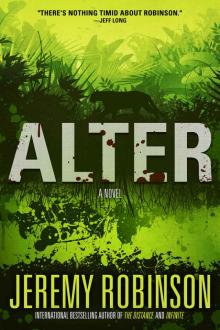 Alter
Alter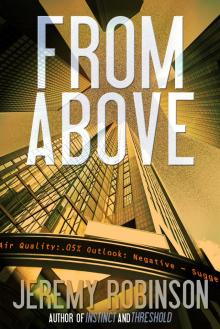 From Above - A Novella
From Above - A Novella Flux
Flux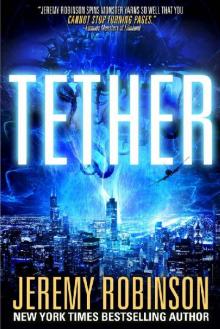 Tether
Tether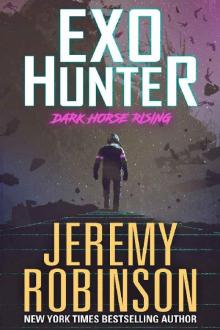 Exo-Hunter
Exo-Hunter Pulse
Pulse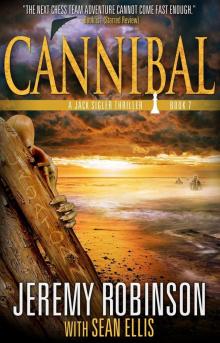 Cannibal
Cannibal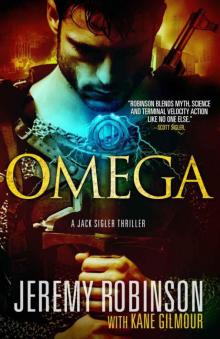 Omega: A Jack Sigler Thriller cta-5
Omega: A Jack Sigler Thriller cta-5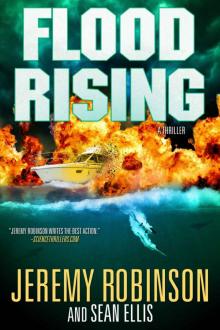 Flood Rising (A Jenna Flood Thriller)
Flood Rising (A Jenna Flood Thriller)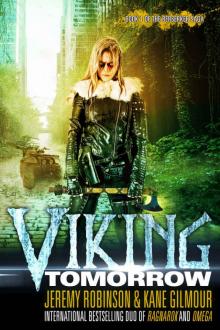 Viking Tomorrow
Viking Tomorrow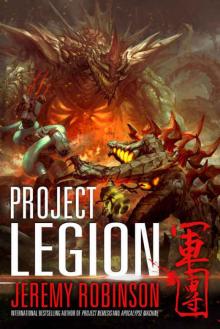 Project Legion (Nemesis Saga Book 5)
Project Legion (Nemesis Saga Book 5)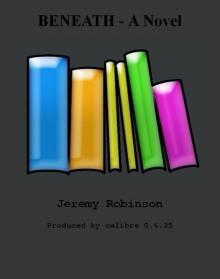 BENEATH - A Novel
BENEATH - A Novel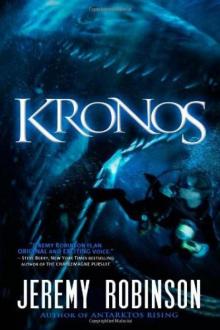 Kronos
Kronos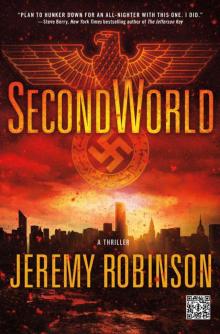 SecondWorld
SecondWorld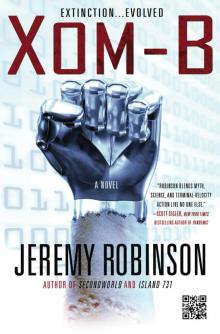 XOM-B
XOM-B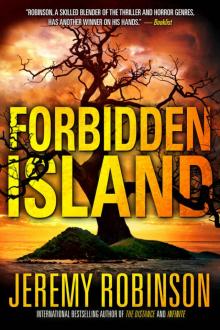 Forbidden Island
Forbidden Island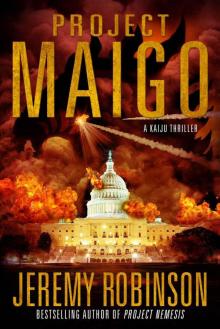 Project Maigo
Project Maigo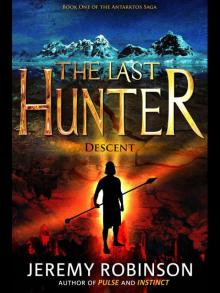 The Last Hunter - Descent (Book 1 of the Antarktos Saga)
The Last Hunter - Descent (Book 1 of the Antarktos Saga)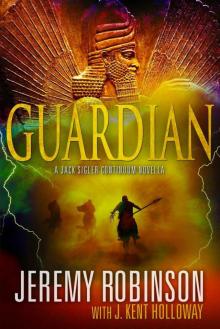 Jack Sigler Continuum 1: Guardian
Jack Sigler Continuum 1: Guardian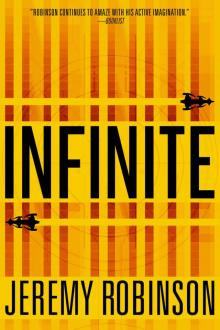 Infinite
Infinite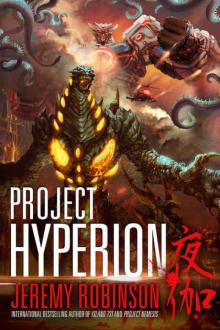 Project Hyperion
Project Hyperion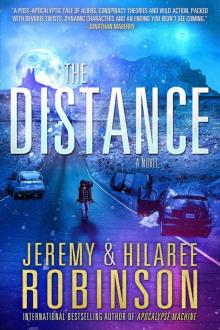 The Distance
The Distance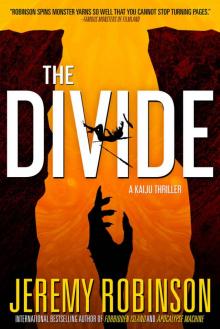 The Divide
The Divide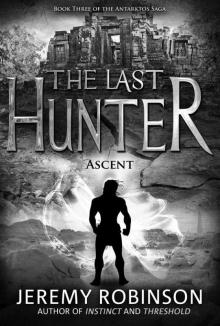 The Last Hunter - Ascent (Book 3 of the Antarktos Saga)
The Last Hunter - Ascent (Book 3 of the Antarktos Saga)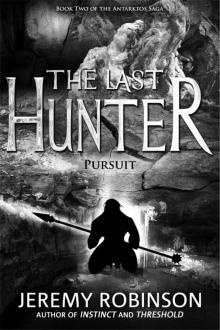 The Last Hunter - Pursuit (Book 2 of the Antarktos Saga)
The Last Hunter - Pursuit (Book 2 of the Antarktos Saga)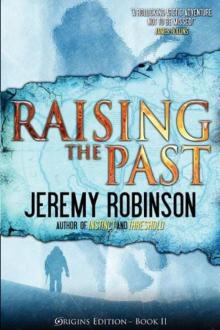 Raising the Past
Raising the Past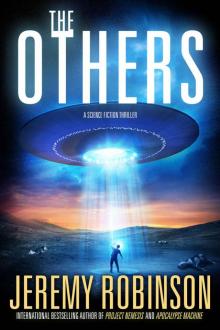 The Others
The Others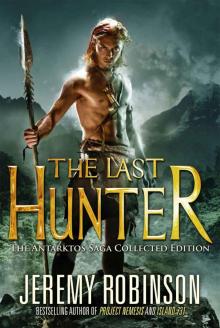 The Last Hunter - Collected Edition
The Last Hunter - Collected Edition Threshold
Threshold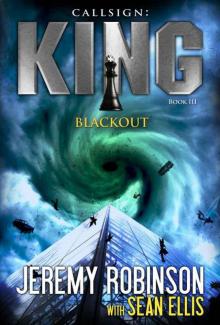 Blackout ck-3
Blackout ck-3 Antarktos Rising
Antarktos Rising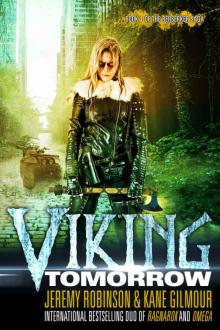 Viking Tomorrow (The Berserker Saga Book 1)
Viking Tomorrow (The Berserker Saga Book 1)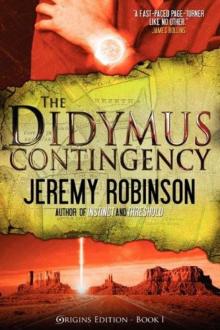 The Didymus Contingency
The Didymus Contingency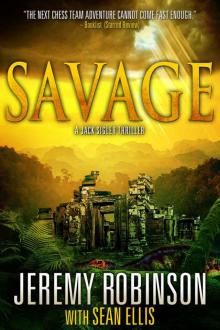 Savage (Jack Sigler / Chess Team)
Savage (Jack Sigler / Chess Team)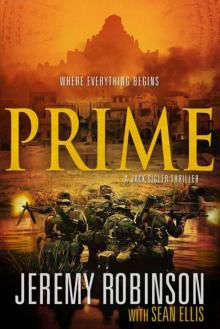 Prime
Prime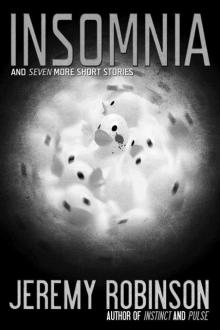 Insomnia and Seven More Short Stories
Insomnia and Seven More Short Stories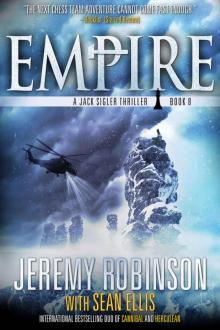 Empire (A Jack Sigler Thriller Book 8)
Empire (A Jack Sigler Thriller Book 8)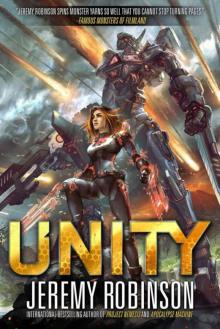 Unity
Unity Instinct
Instinct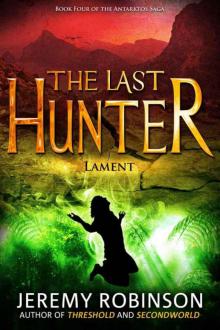 The Last Hunter - Lament (Book 4 of the Antarktos Saga)
The Last Hunter - Lament (Book 4 of the Antarktos Saga)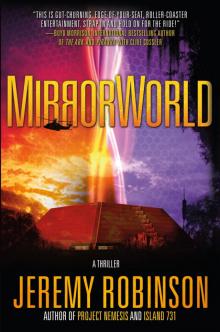 MirrorWorld
MirrorWorld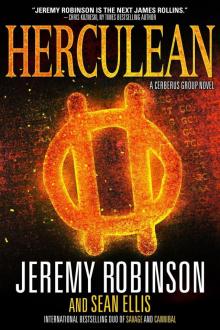 Herculean (Cerberus Group Book 1)
Herculean (Cerberus Group Book 1)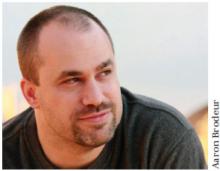 Island 731
Island 731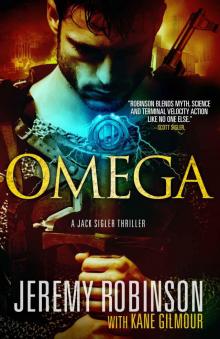 Omega: A Jack Sigler Thriller
Omega: A Jack Sigler Thriller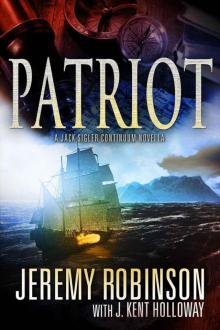 Patriot (A Jack Sigler Continuum Novella)
Patriot (A Jack Sigler Continuum Novella)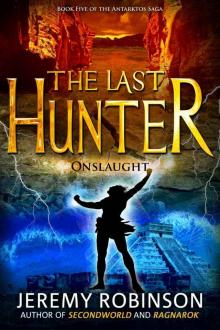 5 Onslaught
5 Onslaught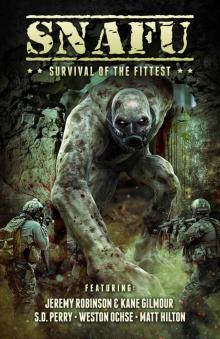 SNAFU: Survival of the Fittest
SNAFU: Survival of the Fittest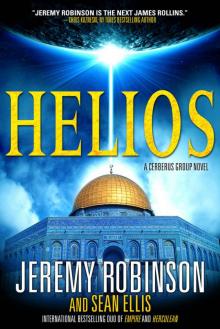 Helios (Cerberus Group Book 2)
Helios (Cerberus Group Book 2)